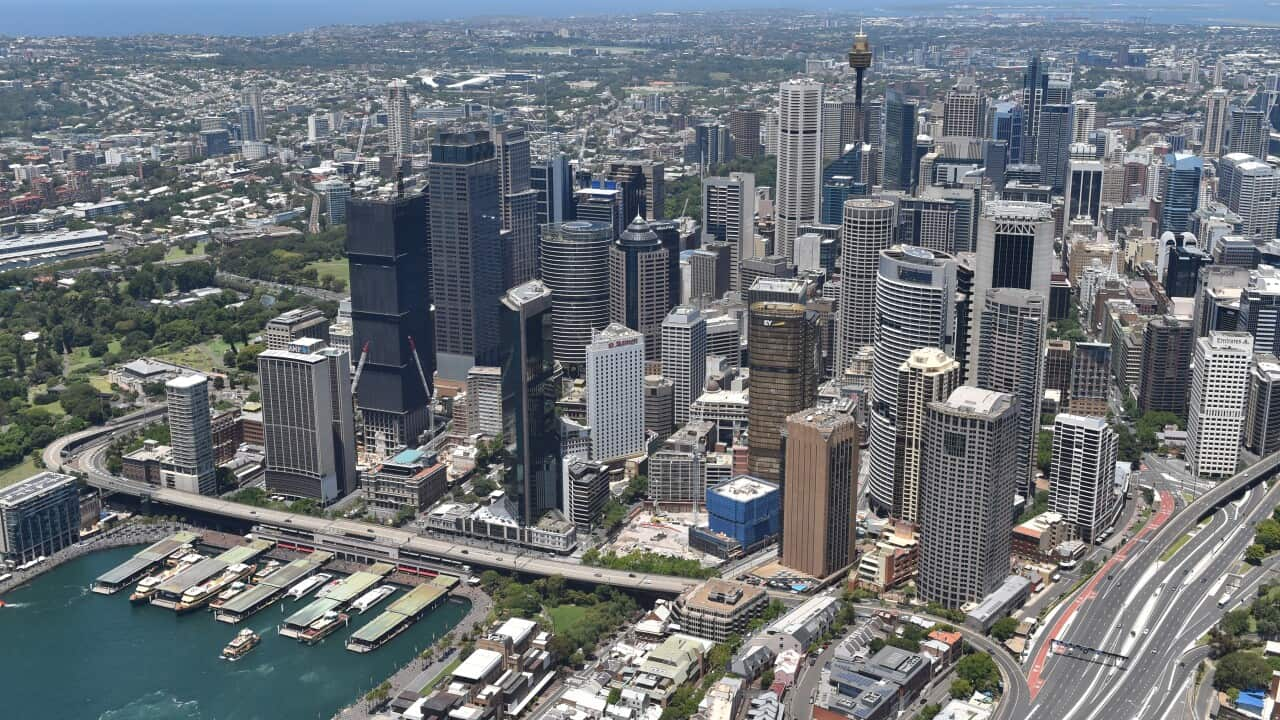KEY POINTS
- Almost a third of big businesses paid no income tax in the 2020/21 financial year.
- The tax office said there can be genuine reasons for this, but it is keeping an extra close eye on these companies.
- The government says it is focused on closing tax loopholes exploited by multinationals.
Sky-high commodity prices fed into the biggest corporate tax haul in almost a decade but more than 30 per cent of big businesses didn't pay any.
Big businesses forked out a combined $68.9 billion in income tax in 2020/21 despite the lingering effects of on the economy.
The 2020/21 total was 19.8 per cent higher than the year before and captured 2,468 Australian and foreign-owned companies.
However, about 32 per cent of businesses - almost 800 - paid no tax at all.

Mining outperformed other sectors, largely thanks to strong iron ore prices and high export volumes Source: AAP / April Fonti
"We pay close attention to companies not paying tax," the Australian Taxation Office (ATO) said.
"We hold those companies that report continual year-on-year losses to an additional layer of scrutiny."
Assistant treasurer Andrew Leigh said it's really important that all firms pay their fair share of tax.
He told reporters in Canberra the government was focused on closing tax loopholes exploited by multinationals, such as cracking down on tax deductions on royalties paid to low or no-tax jurisdictions.
"The last thing we want is an economy in which firms are competing based on who's got the best tax book - that doesn't make a stronger economy, that's not the foundations for productivity growth," he said.
In the , the government pumped an extra $200 million into tax avoidance staff and capabilities.
A bolstered task force will help the tax office crackdown on businesses and individuals avoiding tax, with ATO figures released earlier in the week showing Australians owe almost $45 billion in unpaid taxes.
However, the ATO reported "high levels" of tax compliance among big businesses.
Its corporate tax report found mining outperformed other sectors, largely thanks to strong iron ore prices and high export volumes.
Tax captured through the petroleum resource rent tax, the main resource tax on gas, increased by five per cent for the year to $926 million.
Asked if this was a fair contribution given the surge in commodity prices, Dr Leigh said the time period captured in the report proceeded that has driven up commodity prices.

Assistant Treasurer Andrew Leigh said the government was focused on closing tax loopholes exploited by multinationals, such as cracking down on tax deductions on royalties paid to low or no-tax jurisdictions. Source: AAP / Lukas Koch
Dr Leigh said the government was waiting to see the findings from a Treasury review into the PRRT commissioned by former treasurer Josh Frydenberg.
Retail, wholesale and services also drove growth in corporate taxes, highlighting Australia's robust recovery from .
But insurance companies took a hit from relentless flooding events in parts of the country, which dragged down their contribution to corporate tax receipts.
Most of the 2,468 companies featured in the tax transparency report were foreign-owned (55.8 per cent). They contributed 22.9 per cent of tax.
Another 22.8 per cent were Australian public entities, which contributed the bulk of corporate tax paid (66.2 per cent).
Private Australian entities made up 21.4 per cent of corporate taxpayers and contributed about 10.9 per cent of all tax.


